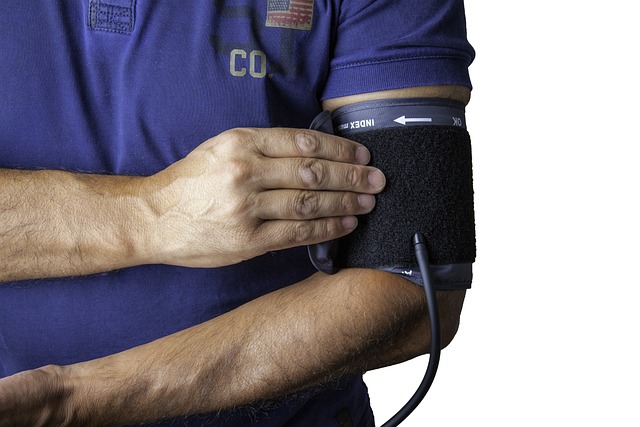Congestive Heart Failure: Common Causes and Early Symptoms
Congestive heart failure, a complex condition impacting heart efficiency, poses significant health challenges. Understanding its root causes, symptoms, and risk factors is crucial in managing the disease effectively. With a focus on comprehensive diagnostics, effective management strategies, and potential complications, this article explores CHF’s intricacies and the interprofessional care approaches enhancing patient outcomes.

What is Congestive Heart Failure?
Congestive heart failure is a chronic, progressive condition in which the heart muscle is unable to pump blood as well as it should. This can result in fluid buildup in the lungs, legs, and other parts of the body, leading to congestion – hence the term “congestive” heart failure. CHF can affect the left side, right side, or both sides of the heart, and it can develop suddenly (acute) or over time (chronic).
What are the Root Causes and Risk Factors of CHF?
Several underlying conditions can lead to congestive heart failure. The most common causes include:
-
Coronary artery disease: Narrowed arteries reduce blood flow to the heart muscle.
-
High blood pressure: Prolonged hypertension forces the heart to work harder.
-
Previous heart attack: Damaged heart muscle can weaken the heart’s pumping ability.
-
Valve disorders: Faulty heart valves can disrupt normal blood flow.
-
Cardiomyopathy: Various conditions that damage the heart muscle.
Risk factors that increase the likelihood of developing CHF include:
-
Advanced age
-
Obesity
-
Diabetes
-
Smoking
-
Excessive alcohol consumption
-
Sedentary lifestyle
-
Family history of heart disease
Understanding these causes and risk factors is essential for prevention and early intervention.
How Can You Recognize CHF Symptoms?
Early detection of congestive heart failure symptoms is crucial for timely treatment. Common signs and symptoms include:
-
Shortness of breath, especially during physical activity or when lying down
-
Persistent coughing or wheezing
-
Swelling in the legs, ankles, and feet (edema)
-
Rapid or irregular heartbeat
-
Fatigue and weakness
-
Reduced ability to exercise
-
Swollen or distended neck veins
-
Abdominal swelling (ascites)
-
Sudden weight gain from fluid retention
-
Loss of appetite and nausea
It’s important to note that symptoms may vary depending on the type and severity of heart failure. Some individuals may experience only a few symptoms, while others may have several.
What Comprehensive Diagnostic Methods are Used for CHF?
Diagnosing congestive heart failure involves a combination of medical history review, physical examination, and diagnostic tests. Healthcare providers typically use the following methods:
-
Blood tests: To check for biomarkers like BNP (B-type natriuretic peptide) and assess organ function.
-
Chest X-ray: To examine heart size and look for fluid in the lungs.
-
Electrocardiogram (ECG): To detect heart rhythm abnormalities and previous heart attacks.
-
Echocardiogram: To evaluate heart structure and function using ultrasound.
-
Stress tests: To assess heart function during physical activity.
-
Cardiac catheterization: To examine coronary arteries and measure heart pressures.
-
MRI or CT scans: To provide detailed images of the heart and surrounding structures.
These diagnostic tools help healthcare providers determine the type, severity, and underlying cause of heart failure, guiding treatment decisions.
What are Effective Management Strategies for CHF?
Managing congestive heart failure requires a comprehensive approach that may include:
-
Lifestyle modifications:
-
Maintaining a heart-healthy diet low in sodium
-
Regular exercise as tolerated
-
Smoking cessation
-
Limiting alcohol intake
-
Stress management
-
-
Medications:
-
ACE inhibitors or ARBs to relax blood vessels
-
Beta-blockers to reduce heart rate and blood pressure
-
Diuretics to reduce fluid retention
-
Digoxin to strengthen heart contractions
-
Aldosterone antagonists to help the body eliminate excess fluid
-
-
Device therapies:
-
Implantable cardioverter-defibrillators (ICDs) for those at risk of dangerous arrhythmias
-
Cardiac resynchronization therapy (CRT) devices to coordinate heart contractions
-
-
Surgical interventions:
-
Coronary bypass surgery for severe coronary artery disease
-
Heart valve repair or replacement
-
Ventricular assist devices (VADs) for advanced heart failure
-
Heart transplantation in select cases
-
-
Ongoing monitoring and follow-up:
-
Regular check-ups with healthcare providers
-
Self-monitoring of symptoms and weight
-
Adherence to medication regimens
-
Effective management of congestive heart failure often requires a multidisciplinary approach involving cardiologists, primary care physicians, nurses, dietitians, and other healthcare professionals. This collaborative effort aims to improve quality of life, reduce hospitalizations, and enhance overall outcomes for individuals living with CHF.
Congestive heart failure is a complex condition that requires careful attention to its causes, symptoms, and management strategies. By understanding the risk factors and recognizing early warning signs, individuals can work closely with their healthcare providers to implement effective treatment plans and improve their heart health. With advancements in medical care and a comprehensive approach to management, many people with CHF can lead fulfilling lives while effectively managing their condition.
This article is for informational purposes only and should not be considered medical advice. Please consult a qualified healthcare professional for personalized guidance and treatment.




